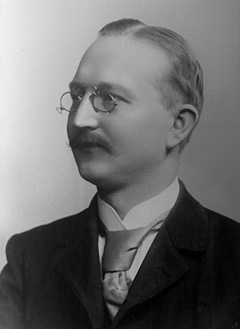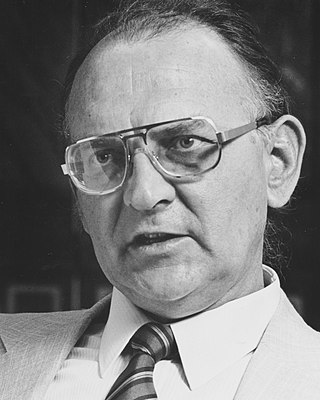Related Research Articles
The Book of Numbers is the fourth book of the Hebrew Bible and the fourth of five books of the Jewish Torah. The book has a long and complex history; its final form is possibly due to a Priestly redaction of a Yahwistic source made sometime in the early Persian period. The name of the book comes from the two censuses taken of the Israelites.
The Book of Joel is a Jewish prophetic text containing a series of "divine announcements". The first line attributes authorship to "Joel the son of Pethuel". It forms part of the Book of the twelve minor prophets or the Nevi'im ("Prophets") in the Hebrew Bible, and is a book in its own right in the Christian Old Testament. Joel is not mentioned elsewhere in either collection.
The Book ofLeviticus is the third book of the Torah and of the Old Testament, also known as the Third Book of Moses. Many hypotheses presented by scholars as to its origins agree that it developed over a long period of time, reaching its present form during the Persian Period, from 538 to 332 BC, although this is disputed.
The oldest surviving Hebrew Bible manuscripts, the Dead Sea Scrolls, date to c. the 2nd century BCE. Some of these scrolls are presently stored at the Shrine of the Book in Jerusalem. The oldest text of the entire Bible, including the New Testament, is the Codex Sinaiticus dating from the 4th century CE, with its Old Testament a copy of a Greek translation known as the Septuagint. The oldest extant manuscripts of the vocalized Masoretic Text date to the 9th century CE. With the exception of a few biblical sections in the Nevi'im, virtually no biblical text is contemporaneous with the events it describes.
Biblical studies is the academic application of a set of diverse disciplines to the study of the Bible. For its theory and methods, the field draws on disciplines ranging from ancient history, historical criticism, philology, theology, textual criticism, literary criticism, historical backgrounds, mythology, and comparative religion.

Biblical criticism is the use of critical analysis to understand and explain the Bible. During the eighteenth century, when it began as historical-biblical criticism, it was based on two distinguishing characteristics: (1) the scientific concern to avoid dogma and bias by applying a neutral, non-sectarian, reason-based judgment to the study of the Bible, and (2) the belief that the reconstruction of the historical events behind the texts, as well as the history of how the texts themselves developed, would lead to a correct understanding of the Bible. This sets it apart from earlier, pre-critical methods; from the anti-critical methods of those who oppose criticism-based study; from the post-critical orientation of later scholarship; and from the multiple distinct schools of criticism into which it evolved in the late twentieth and early twenty-first centuries.

Johann Friedrich Karl Keil or Carl Friedrich Keil was a conservative German Lutheran Old Testament commentator. Keil was appointed to the theological faculty of Dorpat in Estonia where he taught Bible, New Testament exegesis, and Oriental languages. In 1859 he was called to serve the Lutheran church in Leipzig. In 1887 he moved to Rödletz, where he died. Keil was a conservative critic who reacted strongly against the scientific biblical criticism of his day. He strongly supported Mosaic authorship of the Pentateuch. He maintained the validity of the historico-critical investigation of the Bible only if it proved the existence of New Testament revelation in the Scriptures. To this aim he edited his principal work, a commentary on the Bible, Biblischer Kommentar über das Alte Testament. The work remains his most enduring contribution to biblical studies. He also published commentaries on Maccabees and New Testament literature.
Robert Horton Gundry is an American scholar and retired professor of New Testament studies and Koine Greek.
Form criticism as a method of biblical criticism classifies units of scripture by literary pattern and then attempts to trace each type to its period of oral transmission. "Form criticism is the endeavor to get behind the written sources of the Bible to the period of oral tradition, and to isolate the oral forms that went into the written sources. Insofar as this attempts to trace the history of the tradition, it is known as tradition criticism." Form criticism seeks to determine a unit's original form and the historical context of the literary tradition.
Bruce Manning Metzger was an American biblical scholar, Bible translator and textual critic who was a longtime professor at Princeton Theological Seminary and Bible editor who served on the board of the American Bible Society and United Bible Societies. He was a scholar of Greek, New Testament, and New Testament textual criticism, and wrote prolifically on these subjects. Metzger was an influential New Testament scholar of the 20th century. He was elected to the American Philosophical Society in 1986.

Joseph Augustine Fitzmyer was an American Catholic priest and scholar who taught at several American and British universities. He was a member of the Society of Jesus (Jesuits).

Hermann Gunkel, a German Old Testament scholar, founded form criticism. He also became a leading representative of the history of religions school. His major works cover Genesis and the Psalms, and his major interests centered on the oral tradition behind written sources and in folklore.

The origins of Judaism lie in Bronze Age polytheistic Canaanite religion. It also syncretized elements of other Semitic religions such as Babylonian religion, which is reflected in the early prophetic books of the Hebrew Bible.
Stanley E. Porter is a Canadian–American academic and New Testament scholar, specializing in the Koine Greek grammar and linguistics of the New Testament.

Rolf Paul Knierim was a German American theologian and biblical scholar who specialized in the research of the Old Testament. He was a tenured Professor of Old Testament at the Claremont School of Theology and Avery Professor of Religion at Claremont Graduate University.
Choon-Leong Seow, known as C. L. Seow, is a distinguished biblical scholar, semitist, epigrapher, and historian of Near Eastern religion, currently as Vanderbilt, Buffington, Cupples Chair in Divinity and Distinguished Professor of Hebrew Bible at Vanderbilt University. An expert in wisdom literature, Seow has written widely in the field of biblical studies.
Marvin Alan Sweeney is Professor of Hebrew Bible at Claremont School of Theology (1994–present). Dr. Sweeney was trained under the tutelage of Rolf P. Knierim at Claremont Graduate University. He was a Yad ha-Nadiv/Barecha Foundation Post-Doctoral Fellow in Jewish Studies at the Hebrew University of Jerusalem, where he worked with Moshe Greenberg (1989-1990); a Lilly Theological Research Grant Recipient (1997-1998); and a Fellow of the Summer Institute for Modern Israel Studies, sponsored by the American Jewish Committee and Brandeis University (2004). Sweeney previously taught in the Religious Studies Department and Judaic Studies Program at the University of Miami in Coral Gables, FL (1983-1994), and he has served as Dorot Research Professor at the W. F. Albright Institute in Jerusalem, Israel (1993-1994); Visiting Professor of Bible at the Hebrew Union College—Jewish Institute of Religion, Los Angeles, CA ; Underwood Professor of Divinity at Yonsei University in Seoul, Korea (2011); visiting scholar at Chang Jung Christian University in Tainan, Taiwan (2015); and Professor of Tanak at the Academy for Jewish Religion California, Los Angeles, CA (2000-2019). He also serves on the faculty of Religion at Claremont Graduate University (1994–present). In 2019, Sweeney relocated to Salem, Oregon, due to the attempted transfer of Claremont School of Theology to Willamette University.
Carol Ann Newsom is an American biblical scholar, historian of ancient Judaism, and literary critic. She is the Charles Howard Candler Professor Emerita of Old Testament at the Candler School of Theology and a former senior fellow at the Center for the Study of Law and Religion at Emory University. She is a leading expert on the Dead Sea Scrolls, Wisdom literature, and the Book of Daniel.
Graham Sydney Ogden is an Old Testament scholar who served as Translations Consultant with the United Bible Societies. Ogden contributed to the scholarly journals through his research and his writings began appearing in The Bible Translator, Journal of Biblical Literature, Journal for the Study of the Old Testament, Vetus Testamentum and other journals.
Carl Roark Holladay is an American scholar of New Testament, Christian origins, and Hellenistic Judaism. He is the Charles Howard Candler Professor Emeritus of New Testament at Emory University's Candler School of Theology and an Elected Fellow of the American Academy of Arts and Sciences.
References
- ↑ Longman III, Tremper (1995). Old Testament Commentary Survey. Baker Academic. p. 51.
- ↑ Taylor, R. A. (2020). "Form criticism". Dictionary of the Old Testament: Pentateuch. Inter-Varsity Press. p. 477. Retrieved 28 October 2023.
- ↑ Ho, Peter C. W. (2019). The Design of the Psalter: A Macrostructural Analysis. Wipf and Stock. p. 8. Retrieved 28 October 2023.
- ↑ Sun, Henry T. C. (1997). "Preface". Problems in Biblical Theology: Essays in Honor of Rolf Knierim. Eerdmans. p. ix. Retrieved 28 October 2023.